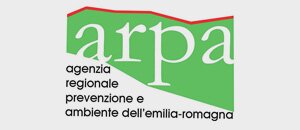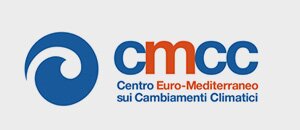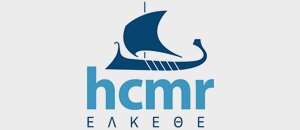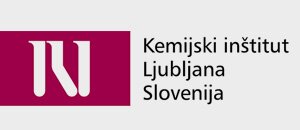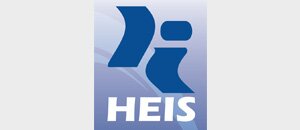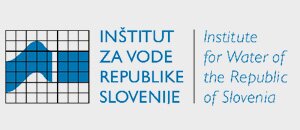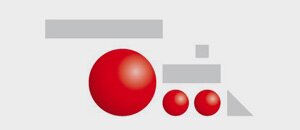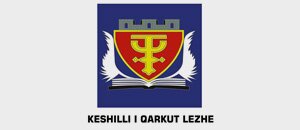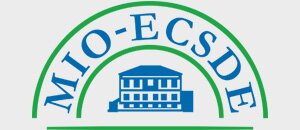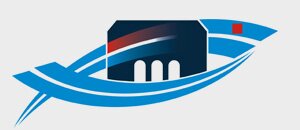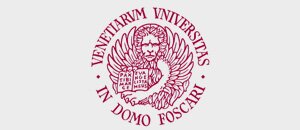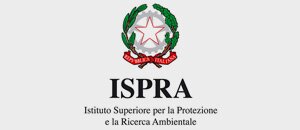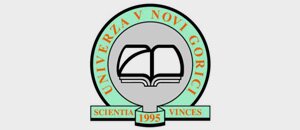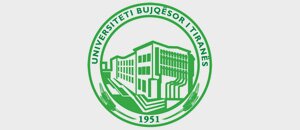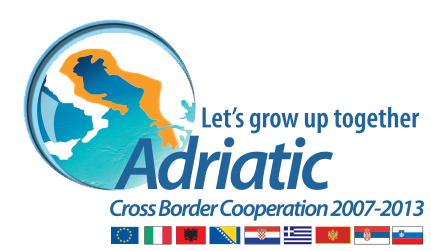
On the occasion of its final event on further advancing the implementation of the Regional Plan for the Management of Marine Litter in the Mediterranean, the IPA Adriatic funded DeFishGear project launched a network for a litter free Adriatic and Ionian coast and sea. The two-day meeting entitled ‘Joint commitment for a marine litter-free Mediterranean Sea’ was successfully organized jointly by UNEP/MAP’s MEDPOL Programme and the DeFishGear project in Tirana, from 19 to 20 July 2016, bringing together some 85 participants from 20 countries of the Euro-Mediterranean area.
Motivated by the successful cooperation accomplished within the project – the first sub-regional project dealing with the marine litter issue in the Adriatic-Ionian macroregion, establishing and piloting comprehensive, coordinated and harmonized marine litter monitoring throughout the region as well as marine litter related measures – the DeFishGear partners decided to further commit themselves to the fulfillment of a shared vision and form a Network for a Litter Free Adriatic and Ionian Coast and Sea.
This network ensures that the contacts and working relationships developed during the project will be maintained and further developed through follow up, collective and collaborative projects and initiatives. Furthermore, it is expected to substantially contribute to efficiently and effectively achieving lasting positive impacts and changes via continuity, coherence and cross-fertilization among and between projects and/or initiatives dealing consecutively or in parallel on the marine litter issue in the region.
The DeFishGear Network, facilitated by MIO-ECSDE, includes the following 16 institutions and organizations:
- Agricultural University of Tirana, Laboratory of Fisheries and Aquaculture, Albania
- Ca Foscari University of Venice, Italy
- Euro-Mediterranean Centre on Climate Change, Lecce, Italy
- Hellenic Centre for Marine Research (Institute of Oceanography and Institute of Marine Biological Resources and Inland Waters), Anavyssos, Greece
- Hydro-Engineering Institute of the Faculty of Civil Engineering, Sarajevo, Bosnia and Herzegovina
- Institute for Oceanography and Fisheries, Split, Croatia
- Institute for Water of the Republic of Slovenia, Ljubljana, Slovenia
- Institute of Marine Biology, University of Montenegro, Kotor, Montenegro
- Italian National Institute for Environmental Protection and Research, Rome, Italy
- Mediterranean Consortium, Rome, Italy
- Mediterranean Information Office for Environment, Culture and Sustainable Development, Athens, Greece
- National Institute of Chemistry, Ljubljana, Slovenia
- Public Institution RERA SD for Coordination and Development of Split Dalmatia County, Split, Croatia
- Regional Agency for Environmental Protection in the Emilia-Romagna Region, Cesenatico, Italy
- Regional Council of Lezha, Lezha, Albania
- University of Nova Gorica, the Laboratory for Environmental Research, Nova Gorica, Slovenia
The Network invites all institutions, organizations and individuals who share the aforementioned convictions, vision and commitment to join and enhance the Network with their ideas, energy and determination.
For more info read the Declaration of Intent and contact Thomais Vlachogianni, MIO-ECSDE Programme Officer at vlachogianni(at)mio-ecsde.org

DeFishGear team continues its activities related to raising of awareness about marine litter pollution among the youngest members of our local communities. Namely, the DeFishGear team members from the Institute for Water of the Republic of Slovenia (IWRS), organised some very interesting lectures for children about this issue. The lectures were organised on the 5th June 2015, as a part of celebration of the World Oceans Day. The event took place at the Marine Biology Station in Piran, Slovenia.
The lectures consisted of the theoretical and practical part. The theoretical part covered the role of Marine Biology Station, the role of plankton in our seas and some experiments done jointly by children and the DeFishGear team. It also included the lecture titled "Sea and Climate Changes", which was followed by an interactive workshop. IWRS also presented the DeFishGear project, and the marine litter problems at the Slovenian coast, specifically focusing on the impacts of marine litter on flora and fauna.
During the practical part, the real marine litter was used to create pictures, which had a very positive impact on children and the general public. Besides pictures, the team also created some music instruments out of marine litter. The event was finished by a short concert with a very talented young singer.
In total, 41 children and teachers from kindergartens and elementary schools were involved in this activity.
Considering that raising awareness of young generations is very important for the future protection of our seas, the DeFishGear team members will continue to dedicate their time to this important issue in the future as well. Only if we are all sensitive to this issue, we can expect the situation concerning marine litter to improve.
For more information about the event, please contact Mr Uroš Robič via the following e-mail: This email address is being protected from spambots. You need JavaScript enabled to view it.

Chioggia is one of the most important Italian fishing harbors and many people are involved in fishing activities, but the consciousness about marine litter related problems is low (source, effects, etc.). Therefore, the DeFishGear project partner - Institute for Environmental Protection and Research - ISPRA, organised a theoretical and practical course on marine litter for the children from the Primary School ‘M. Merlin’ of Chioggia, in order to raise awareness of marine litter related problems to new generations.
The aim was to promote appropriate behavior of students and their relatives in order to reduce marine litter, and to foster the Fishing for Litter pilot activity, which started in Chioggia in March 2015. The course was structured in four parts:
- The first part consisted of 2 lessons in the classroom dealing with general information on marine litter (what is marine litter, how and why litter reaches the sea, endpoint of marine litter). The Marlisco video Sources and Impacts of Marine Litter by Jane Lee was shown.
- The second part of the course titled “Hunting for Marine Litter”, consisted of a beach litter survey. A beach close to the school was chosen because it is the place where most children spend their summer time. Children were divided into four teams. Each team collected and classified marine litter into a designated sampling area (3 m2) using a simplified DFG monitoring sheet, specifically prepared for this purpose. The number of categories of the DFG monitoring sheet were reduced, emphasizing the items that children could easily recognize and that were part of their normal life (toys, cigarette butts, pens, etc.). Children were invited to identify litter material at first (plastic, rubber, glass, etc.), and then put the items in the correct categories. The weight of different materials was also recorded. After the survey, teachers worked with the students to prepare graphs for each macro category, and most frequent items were identified. ISPRA staff joined the class for a special lesson dedicated to data analysis and to the identification of main sources of litter they collected.
- The third part of the course was dedicated to marine litter effects on marine life, ecosystems, human health, and to its economic impact. Individual behaviors were analyzed and the correct ones were pointed out. A video about Fishing for Litter pilot activity in Chioggia was shown as an example of a good practice to reduce marine litter sunken on the sea floor. The children were very impressed with everything presented to them.
- The fourth and last part of the course is still under way. Children and their teachers were encouraged to develop posters about marine litter to sensitize people to marine litter related problems, and to encourage correct behavior. Two drawings done by the students were selected to become the image printed on the t-shirts that will be distributed to the students at the end of the course like a DFG gadget. The posters will be placed in some of the most popular tourist beaches in Chioggia during summer. In June, the students and their teachers and relatives, will meet fishermen involved in Fishing for Litter activity at the disposal point in the commercial harbor. The Harbor Master, representatives of the Municipality of Chioggia, as well as the representatives of the multi-utility in charge of litter management (Veritas srl) will participate as well. Fishermen will show FFL activity to children in order to give an idea of the amounts of litter laying on the sea floor and the importance of such initiative. Children will sing two songs about fishermen and marine litter and will show their posters. They will also deliver special diplomas to the "Fishing for Litter Boats". Aluminum bottles with the message “Less plastic bottles more marine life” will be distributed to all participants.
We will come back soon with more details of this activity!
For more information about the course, please contact Ms Tiziana Chieruzzi via e-mail: This email address is being protected from spambots. You need JavaScript enabled to view it.

Projects Marlisco and DeFishGear organized a National Forum on Marine Litter, on Wednesday, February 4th 2015, in Strunjan, Slovenia, with the purpose of stimulating a public debate on this issue.
The forum was joined by over 30 representatives of legislature, municipalities, NGOs, researchers and the economy, as well as participants joining the event on-line. After the presentations of Marlisco and DeFishGear projects and their efforts in this area, the panel of experts from various fields gave their own view of the situation and their opinion on where the improvements should be made.
Through an open discussion and group work, participants developed proposals for measures to improve the situation, including strengthening the awareness, improving control over the illegal discharge of waste, reuse and education on how to reduce the consumption of plastic in everyday life (e.g. shopping).
All the proposed measures will be presented in a report which will be forwarded to various actors at national and local level in Slovenia, as well as to partners of both projects which will consequently spread these ideas also beyond the borders of Slovenia.

In September and October 2014, the DeFishGear project was presented at two events in Montenegro.
Namely, at the end of September 2014, the “First Conference on Integrated Coastal Zone Management in the Adriatic Sea” was organised in the premises of one of the DeFishGear project partners - “Institute of Marine Biology” in Kotor, Montenegro. Almost 50 scientists from Russia, Serbia, Italy, Albania, Croatia and Montenegro attended this conference at which 26 different papers were presented.
Conference was a continuation of cooperation in the framework of an agreement between the University of S. Yu Vitte from Moscow, University of Montenegro, Montenegrin Academy of Sciences and Arts and the Institute of Marine Biology.
Within the component relating to the presentation of results of research projects under the theme of the Adriatic Sea, its wildlife and impacts on ecosystems, Ms Branka Pestoric from the Institute of Marine Biology presented the DeFishGear project, including its objectives, activities and planned results.
In addition to the event above, in October 2014, the Institute of Marine Biology in Kotor also participated in the “Open Days of Science”, organised by the Ministry of Science, Montenegro. The Institute was visited by high-level delegation, headed by prof. dr. Sanja Vlahovic, Minister of Science, His Excellency the Ambassador of Montenegro to Italy Mr. Vojin Vlahovic, and senior representatives of CNR - Italy. Within the programme, the Institute prepared a series of interesting presentations for visitors. One of the presentations was about the DeFishGear project, during which the visitors were provided with detailed information about the project. Project leaflets were also distributed during the event.


